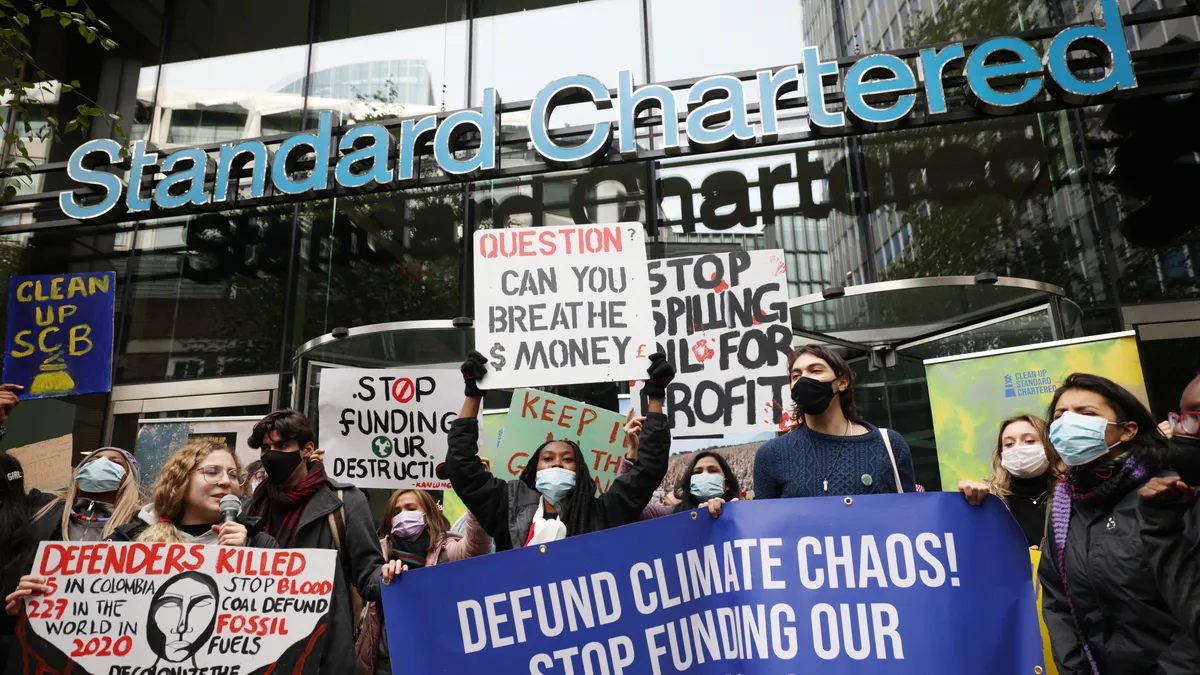Dive Brief:
- Standard Chartered has committed to set a baseline and science-aligned target by 2025 to reduce methane emissions generated by its clients from the oil and gas sector, the bank announced Thursday.
- The bank said its target-setting aligns with its objective to decrease financed carbon emissions and builds on decarbonization goals that were outlined during the COP28 summit. The target will also help accelerate Standard Chartered’s pathway to net-zero, which it aims to achieve in its own operations by 2025 and financed operations by 2050.
- The London-based financial institution, which operates in 59 global markets and manages over $800 billion in assets, said the impact of methane emissions is “significantly higher” than that of carbon dioxide emissions. Methane emissions are over 25 times more potent than carbon dioxide emissions, according to the bank, and hence acts as a “critical lever” in climate mitigation strategies.
Dive Insight:
Standard Chartered updated its targets for emissions from the oil and gas sector last year, setting a carbon budget that requires a 29% reduction in sectors’ absolute financed emissions by 2030, compared to a 2020 baseline. The company aligned its targets with the International Energy Agency Net Zero Emissions scenario, it said at the time.
A few months after the announcement, the International Energy Agency released a report in conjunction with the United Nations Environment Programme which found that prompt cuts in methane emissions from fossil fuels could “avoid up to 0.1 °C in global temperature rise by mid-century.” According to the October 2023 report, this reduction would have a greater impact in curbing emissions than immediately removing all cars and trucks off the roads around the world.
Recent research from the Environmental Defense Fund also points to cutting methane emissions as the “fastest opportunity” to slow the rate of global warming, even as companies and governments seek to decarbonize energy systems. The fund’s analysis showed that methane has 80 times the warming capacity of carbon dioxide during the first 20 years after it reaches atmosphere level.
“Addressing methane emissions is critical if we are to reduce the collective impact of greenhouse ga[s]ses on our environment,” Standard Chartered’s Chief Sustainability Officer Marisa Drew said in a release. “We believe it is important to support and encourage the movement to new industry best practice[s] with further accountability and transparency by setting targets that build on our existing decarbonisation efforts.”











